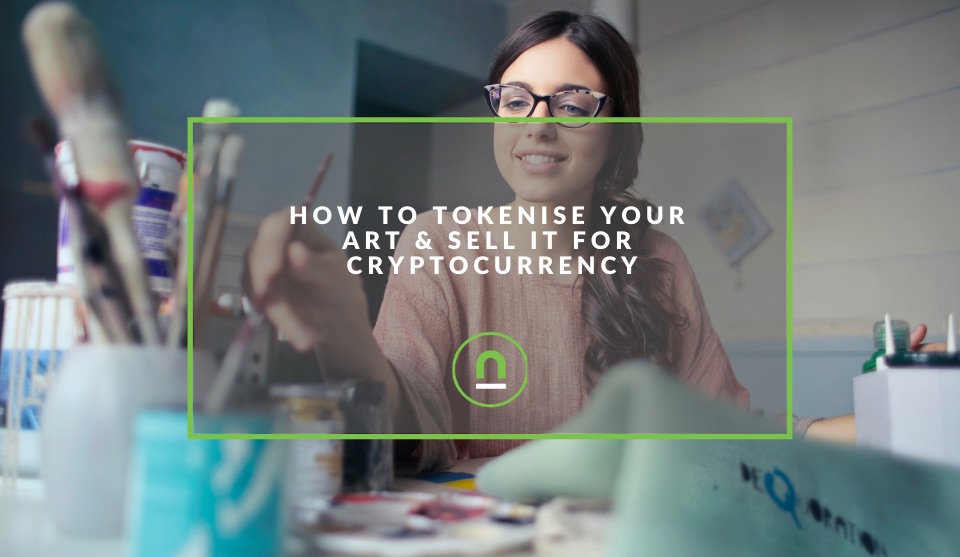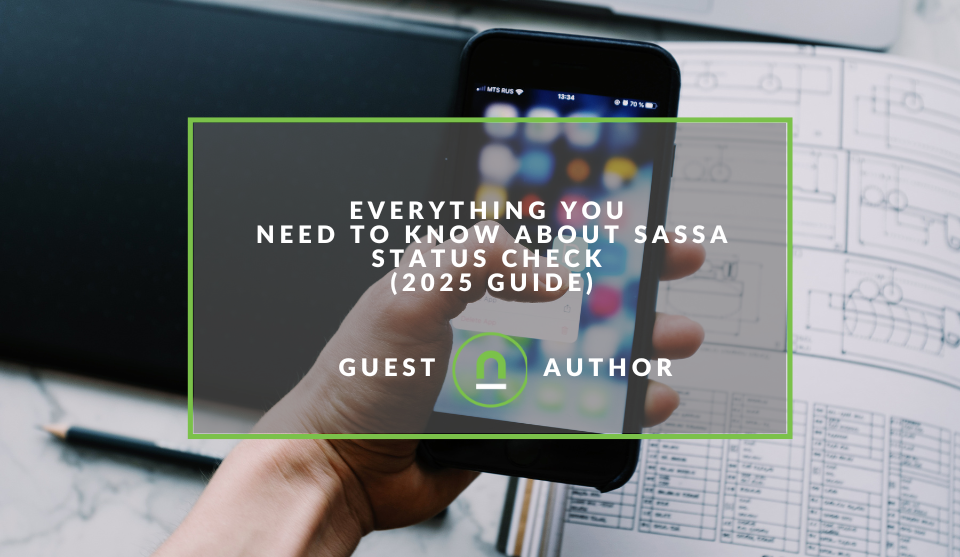Recent posts
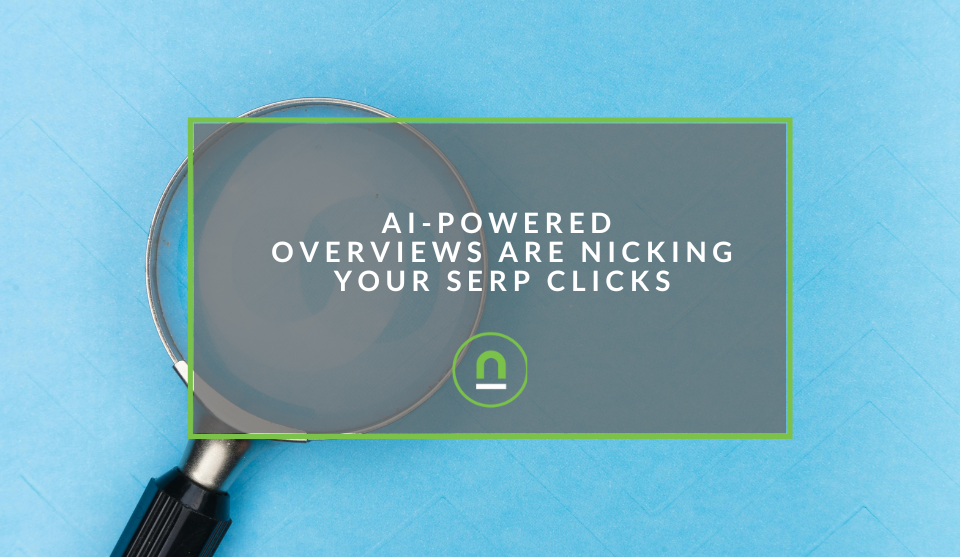
nichemarket Advice
AI-Powered Overviews Are Nicking Your SERP Clicks
11 May 2025
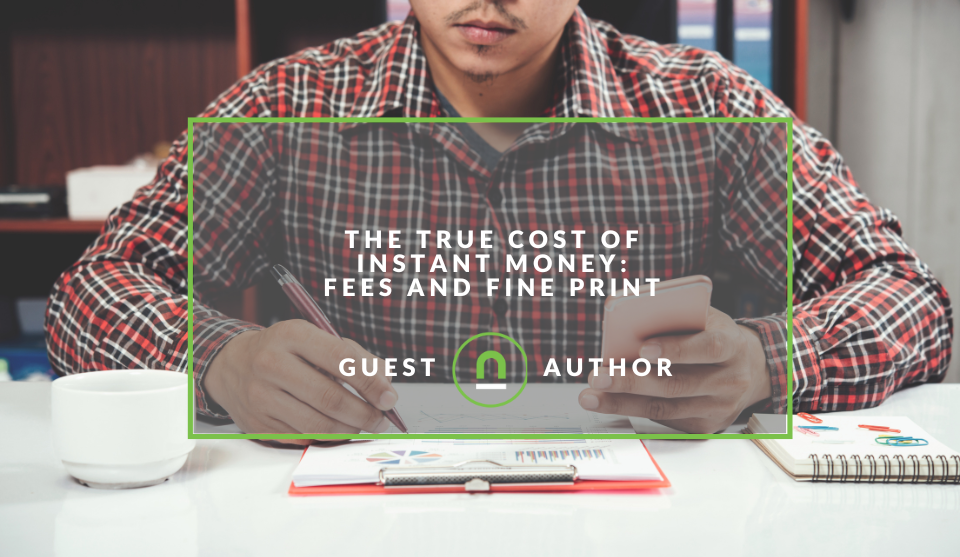
Money Talks
The True Cost of Instant Money
07 May 2025
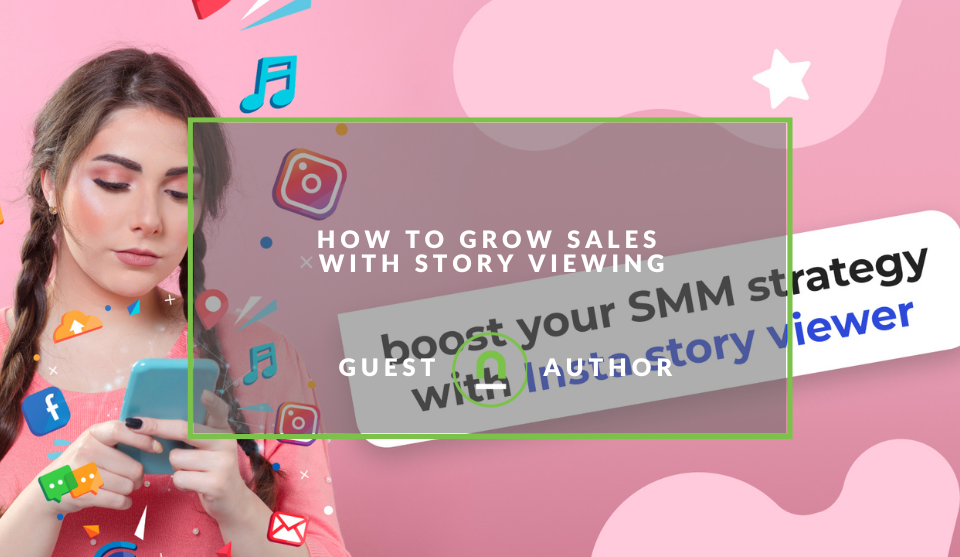
Industry Experts
How to Grow Sales with Story Viewing
06 May 2025
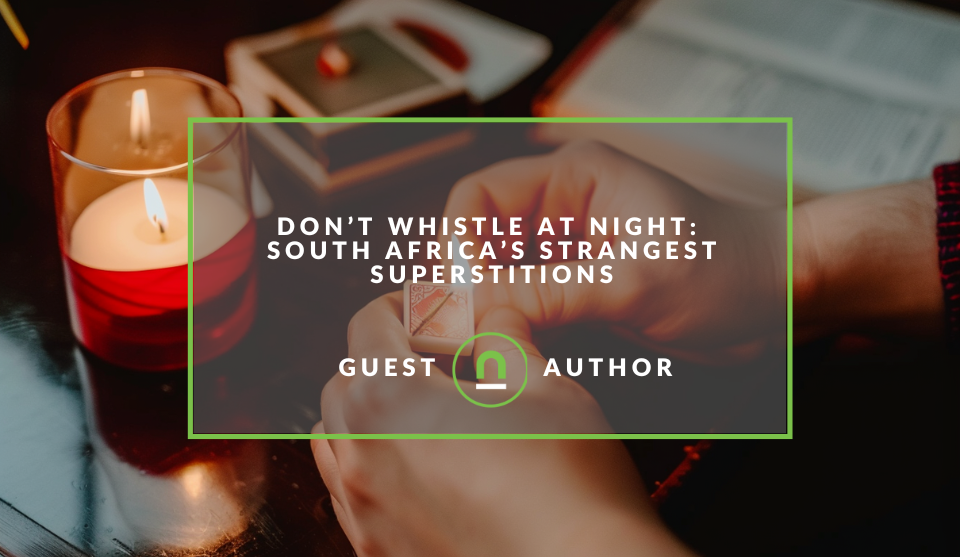
Mind, Body & Soul
Do Not Whistle at Night: South Africas Strangest Superstitions
26 April 2025
Popular posts
Extravaganza
Trending Music Hashtags To Get Your Posts Noticed
24 August 2018
Geek Chic
How To Fix iPhone/iPad Only Charging In Certain Positions
05 July 2020
Extravaganza
Trending Wedding Hashtags To Get Your Posts Noticed
18 September 2018
Money Talks
How To Find Coupons & Vouchers Online In South Africa
28 March 2019
How To Tokenise Your Art & Sell It For Cryptocurrency
02 November 2020 | 1 comments | Posted by Che Kohler in Ace of Trades
The idea of the starving artist has been ingrained in our minds as a cliche, as in the past. Many artists sacrificed their material well-being to focus on their artwork. They would typically live on minimum expenses, either for lack of resources or purposefully stripping themselves of resources to encourage the creative spirit within them. The monetisation of art and the issues with it is a tale as old as time, artist dies without seeing a penny and then their estate is worth millions a few generations down the line.
In some cases, it would not even be the family benefitting from the appreciated value of the artwork and contesting of the origination of art can be a painful and expensive process.
These obvious issues regarding ownership, appraisal of art, authentication of art and the perceived value based on the open market, make art a challenging investment. Artists also very rarely know how to market themselves and their work to generate an income; they focus more on creating an expressive piece over the idea of packaging something a consumer would want to purchase.
All these issues have created a barrier for artists. While some do find support or have the lick and vigour to make a career from selling their art, many don't and give up. These hindrances see a loss of talent in the industry, and we lose many artists, and potential creativity goes to waste.
Blockchain and art
Blockchain has revolutionised the way we see money by solving the double-spend problem and ushering in the era of true digital ownership. Yes, this sounds like a bit of a left filed statement, how did we get from art to blockchain; however, give me a second to explain.
Bitcoin was the first successful use case for blockchain and has gone on to build an entire industry expanding around its concept and value. At the same time, Bitcoin acts as a store of value and digital representation of money some creative developers thought they could take this concept and expand it into something new.
The introduction of smart contracts with the help of Ethereum has given rise to many new applications for blockchain, one of them being NFT's or Non-fungible tokens. NFT's allow you to take a piece of code and create a unique version of it that cannot be replicated or reproduced; it contains specific metadata and properties that ensure authenticity and ownership.
If we can think of Bitcoin as money as a real-world application, NFT's would be seen as collecters items from collectable cards and figurines, to you guessed it art.
It was only a matter of time before the applications of NFT's would be brought into the art world and allow artists to tokenise and monetise their content in unique ways.
What does NFT mean for artists?
Given that blockchain is decentralised immutable and transparent technology, its features are automatically applied to the tokens stored on the platform, these features apply to art in the following ways.
Firstly tokenisation digitises the ownership into tradeable tokens thereby improving the liquidity of artworks. Artists mint their item on a chain, issue how many versions they're willing to sell off a particular piece, set the price based on their value and allow the market to go to work.
Art NFT also doubles up as a reliable method to authenticate and verify the works of art, that it's produced and traced back to the original author/creator. It is easier to track the certification and owners of an item; thanks to blockchain technology. No need for certificates of authenticity; everything is done on the chain and maintain the integrity and value of the piece.
Lastly, it reduces the barrier to entry for the independent and budding artists who can use this medium to list and promote their artwork instead of opting the services of expensive galleries. This also helps them gain entire ownership of their works while also avoiding payment to third-party intermediaries or agents, cutting out the loss on fees and getting a better deal on a sale of art.
How can you tokenise your art?
No, you do not have to be a developer or know how to code for you to tokenise your art, thankfully several projects have sprung up in the space to do all the tech work for you, and all you need to do is provide your inventory.
These platforms are still relatively new, and as more artists embrace these services, they'll be able to grow, attract more buyers and thus establish a more significant marketplace with more competitive bids and expose your art to people who are interested in owning a piece.
The fantastic part of it is since everything is digital and cryptocurrency-based, you have access to buyers from all over the world who can purchase your art in a quick and frictionless way, while you sleep. You don't have to actively campaign and promote your work, although it may help, your art will be available for purchase 24/7 regardless of how active you are in promoting the sale of your work.
- Note: 17 December 2020 - Added Nifty Gateway
- Note: 18 January 2021 - Added Atomic Hub
1. NFT Showroom
NFT Showroom is an art tokenisation platform built on the HIVE blockchain, the forked version of STEEM. The NFT showroom allows you to login with your HIVE account and leverages its side chain with smart contracts to tokenise digital representations of your art. The great thing about the HIVE blockchain is that it offers free transactions with 3 second confirmation times, so as you create art and submit it to the chain it will cost you nothing, while those who purchase via HIVE also require a HIVE account.
HIVE account users do require you to stake a small amount of HIVE to cover transactions on the chain, which remains in your possession and can be sold at any time. So there might be a small investment requirement, but you do not lose those tokens.
2. Rariable
Rariable is built on the Ethereum blockchain and allows anyone with an Ethereum wallet to create an account to tokenise their art. Since Rarible runs on ETH, you will require gas in your account in the form of ETH to pay for on-chain transactions such as minting art onto the chain. The cool thing about Rarible is it allows users to purchase art not only with Ethereum but with hundreds of ERC-20 based tokens. You are opening up your art to even more buyers as well as better liquidity and a larger user base versus that of NFT Showroom on the HIVE chain.
3. Makers Place
Makersplace also uses Ethereum to manage the tokenisation of art but accepts both cryptocurrency and fiat currency for purchases. Makers Place takes 15% only when you make a sale, plus an additional 2.9% for purchases made through credit card. Additionally, you can also net yourself a further 10% in royalty fees every time your works are re-sold.
4. Mintable
Mintable is not specifically catering to art as it can be used for gaming items and collectables too, but this Ethreum based dapp allows anyone to create ERC-721 NFT tokens on Ethreruem for any art they have created and secure ownership of it on the blockchain. Mintable is currently in the Beta stage but runs completely live on the Ethreum mainnet, the smart contract to mint items is secure but might have a few bugs that still need to be ironed out so please be careful when creating and trading NFT's via Mintable.
5. Nifty Gateway
Nifty Gateway is owned by Gemini the cryptocurrency exchange where users can log in and create tokenised versions of art using the NFT token standard which is known to the platform as "Nifties", the platform uses the Ethereum blockchain and has been around since 2018.
6. AtomicHub/AtomicAssets
AtomicAssets is an NFT marketplace built on the EOS blockchain anyone with an EOS wallet can use the platform to create digital assets and buy, sell & auction assets utilizing the Atomic Assets marketplace.
A token of appreciation
Now that you know how to tokenise your art, will you be creating a digital piece? Which platform will you choose? Let us know in the comments below and share your profile with us, we'd be happy tot ake a look at your art.
Contact us
If you would like to know more about digital assets or would like to market your digital asset company or how to set it up for your business, then don’t be shy we’re happy to assist. Simply contact us
Are you looking to promote your business?
South African finance business owners can create your free business listing on nichemarket. The more information you provide about your business, the easier it will be for your customers to find you online. Registering with nichemarket is easy; all you will need to do is head over to our sign up form and follow the instructions.
If you require a more detailed guide on how to create your profile or your listing, then we highly recommend you check out the following articles.
Recommended reading
If you enjoyed this post and have a little extra time to dive deeper down the rabbit hole, why not check out the following posts on cryptocurrency and blockchain.
- Why Blockchain and Cryptocurrency Is The Future Of Money
- 24 Ways To Earn Cryptocurrency
- How To Pay Tax On Cryptocurrency In South Africa
- How To Buy Bitcoin In South Africa
- Why Does Your Bitcoin Wallet Address Keep Changing?
Disclaimer: This article should not be taken as, and is not intended to provide any investment advice and is for educational purposes only. As of the time posting the writers may or may not have holdings in some of the coins or tokens they cover. Please conduct your own thorough research before investing in any cryptocurrency as all investments contain risk.
Tags: Art , Blockchain , Cryptocurrency
You might also like
Everything You Need to Know About SASSA Status Check
13 April 2025
Posted by Azhar Khanzada in Money Talks
A guide for 2025 for anyone looking to apply for a SASSA grant or would like to keep up to date with the status of your grant from application to red...
Read moreAI-Powered Overviews Are Nicking Your SERP Clicks
11 May 2025
Posted by Che Kohler in nichemarket Advice
How AI-powered overviews have begun to shrink click-through rates from Google and Bing and what that means for the average site trying to secure orga...
Read more